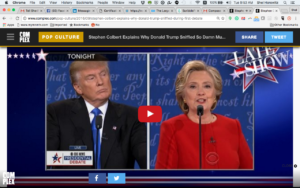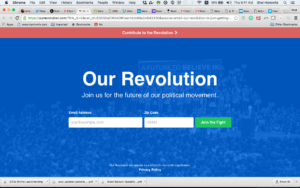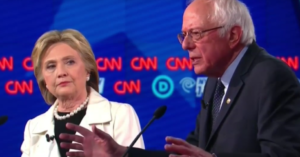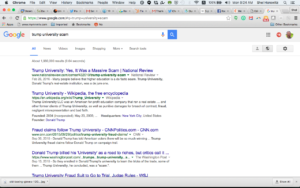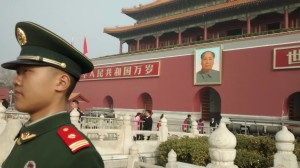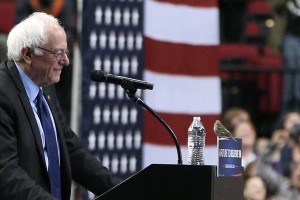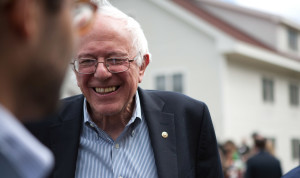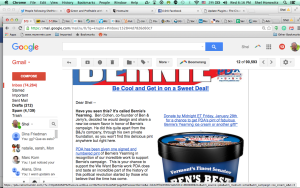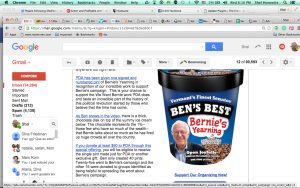Did Obama Create Trump?
I read a comment by the author of a new book called President Obama Created Donald Trump, claiming that President Obama saw himself and the country as post-racial, and thus didn’t prepare for the consequences of “the catalyst for racial backlash and unrest” that led to Trump’s nomination.
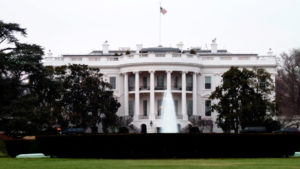
Interesting theory. But it sounds to me like blame-the-victim. I’m too young to remember FDR, who I know was adamantly hated by conservatives—and who, despite that hostility, was elected four times. When the Republicans got power again in 1952, their standard-bearer was no radical demagogue. It was Eisenhower, a moderate who feared the oligarchy and was the first to call it “the military-industrial complex.”
Obama has borne the brunt of more hostility than any US president in my lifetime (much of it due to his color)—and handled it with remarkable grace. In this author’s view, he is somehow to blame for racism?
Here’s my contrasting view: When the Democratic Party and especially (Texan/Southerner) LBJ began to get serious about undoing racism, the Republicans, starting at least with Richard Nixon and his Southern Strategy (if not earlier) began courting and nurturing the most racist right-wing fanatics in the party. Richard Viguere and his ilk brought fundraising, marketing, and organizing prowess. Reagan came to the party with a new economic agenda geared toward the 1%. Bush II added megalomaniacal ignorance and disastrous foreign and economic policies, yielding two wars and the Great Recession–and a hankering for “change.”
Obama rode that wave but faced an intransigent Congress openly dedicated to sabotaging his efforts. Progressives perceive him (falsely) as not accomplishing much. Yet the Republicans see him as usurping power. Neither accusation has merit, but that’s the public perception.
So people are eager for change. We saw it in the remarkable primary successes of not only Trump but Bernie Sanders (who I supported and voted for, incidentally—and like Bernie, I’m voting for Clinton next month). People feel disenfranchised, powerless, and thoroughly disgusted with the Establishment. Hillary Clinton, destined perhaps to be an even more hated president than Obama or FDR, is the embodiment of that establishment, as is Jeb Bush–one of the first GOP candidates to drop out.
Trump stepped into the vacuum, with lowest-common-denominator messages of hate masked in “Make America great again” rhetoric. I don’t think it’s a coincidence that many of his statements closely parallel quotes from Hermann Goering:
Trump: “I love the poorly educated!”
Goering: “Education is dangerous—every educated person is a future enemy.”Trump: “The security guys said, Mr. Trump, there may be some people in the back with tomatoes in the audience. If you see somebody with a bag of tomatoes, just knock the crap out of them, would you? I promise you, I will pay for the legal fees.”
Goering: “Shoot first and ask questions later, and don’t worry, no matter what happens, I will protect you.”Trump: “By the way, if she gets to pick, if she gets to pick her judges, nothing you can do, folks. Although the Second Amendment people, maybe there is, I don’t know. But I tell you what, that will be a horrible day.”
Goering: “Whenever I hear the word culture, I reach for my Browning.”
While his psychopathologies and abusive behaviors (not just the groping, but the lying, cheating, physical intimidation, psychological intimidation, threats of violence, etc.) go beyond even the Republican Party of Dick Cheney and Donald Rumsfeld, Trump’s thinking is a logical extension of his party’s reach for the bottom of the bottom of the bottom of the barrel. He is the next iteration of a pattern that began in the GOP nearly 50 years ago. He is merely the next step the Republican Party has aimed toward for decades.

